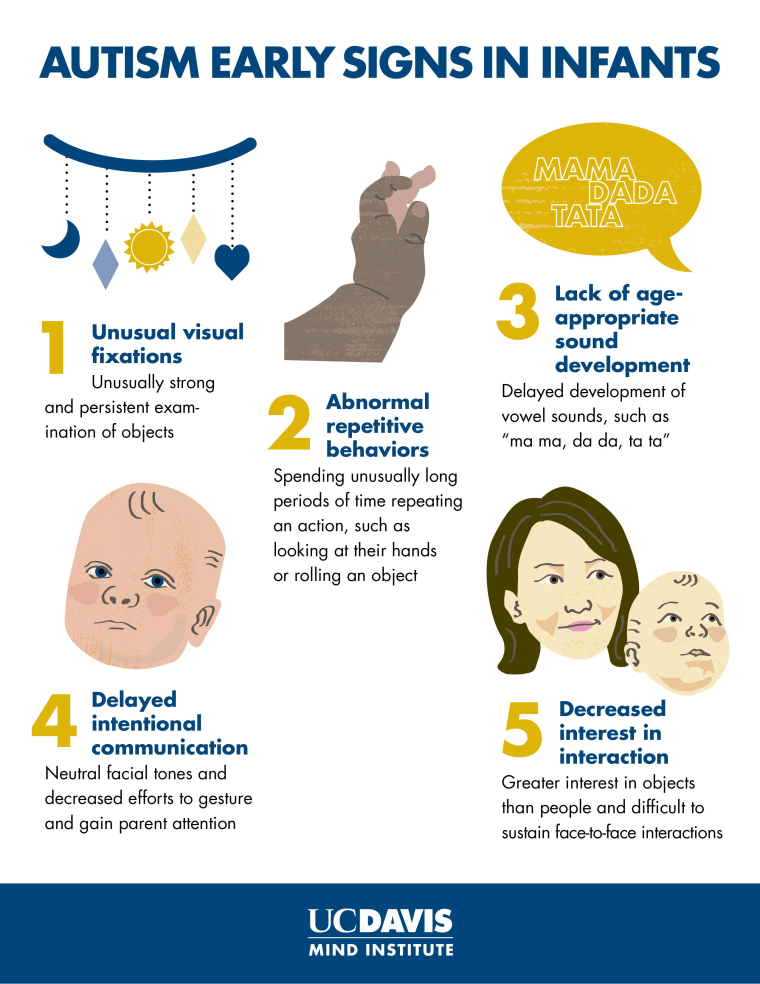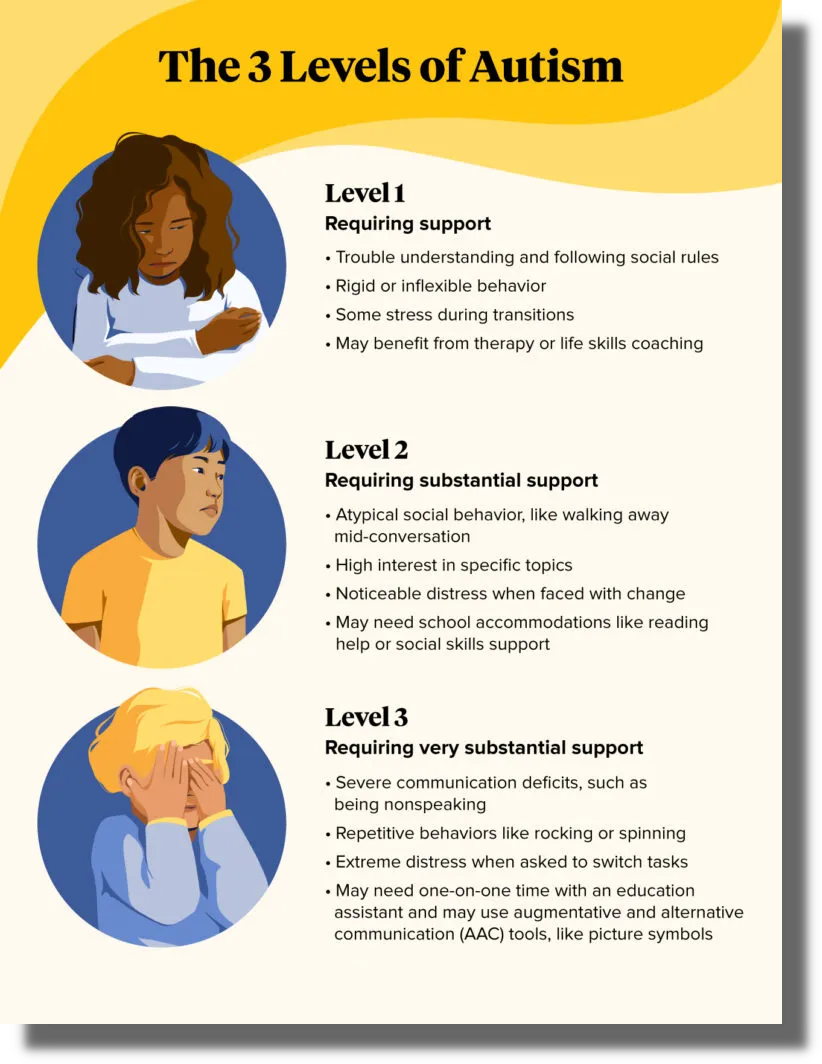The ultimate guide to working with Autism Spectrum Therapies
The ultimate guide to working with Autism Spectrum Therapies
Blog Article
Trick Signs and Signs And Symptoms to Recognize in Individuals With Behavior Autism
When you experience someone with behavioral autism, recognizing crucial signs and signs and symptoms is necessary. Furthermore, sensory level of sensitivities can lead to frustrating experiences.
Challenges in Social Interactions
When you engage with somebody on the autism range, you might discover they struggle with social cues and communication. These obstacles can make social interactions really feel frustrating for them.
Additionally, you may find that they like regimens and familiar settings, which can restrict their desire to take part in brand-new social circumstances. They might chat concerning their interests in wonderful detail without noticing if you're interested when they do engage. This can cause prejudiced discussions that leave you feeling separated. Comprehending these challenges can aid you approach interactions with empathy and persistence, cultivating a more comfy atmosphere for both of you.
Trouble With Verbal and Non-Verbal Communication

Non-verbal interaction can be also much more challenging. You could see an absence of eye call or minimal use gestures, which can make communications feel unpleasant. Faces might not always line up with the conversation, causing confusion regarding their sensations. Identifying these signs is essential, as it aids you better support and engage with individuals on the autism spectrum. By comprehending their interaction difficulties, you can cultivate extra significant links and supply a much more helpful setting.
Repeated Behaviors and Routines
Communication challenges commonly come with various other signs of autism, such as repeated behaviors and a strong choice for regimens. You could notice that individuals with autism often participate in particular, repetitive actions, like hand-flapping, rocking, or duplicating phrases. These actions can supply comfort and a feeling of control in a commonly overwhelming globe.
Regimens are similarly vital; many people flourish when they adhere to an organized schedule. You might find that changes to these regimens can lead to significant distress. If they have a day-to-day routine of eating breakfast at a specific time or adhering to a specific route to school, any kind of interruption can cause anxiousness.
Identifying these patterns assists you comprehend their habits and supply support. By fitting their requirement for regular and permitting repetitive activities, you can develop a more comfortable atmosphere that eases their difficulties.
Sensory Sensitivities

Usual Sensory Triggers
Sensory sensitivities can substantially affect every day life for individuals with autism, as certain stimuli often activate frustrating reactions. Typical sensory triggers consist of loud sounds, intense lights, and strong scents. You might discover that unexpected noises, like sirens or alarms, trigger anxiety or distress. In a similar way, fluorescent illumination in stores can feel severe and awkward. Structures can also play a considerable role; harsh textiles or certain food appearances may be excruciating for you. Furthermore, crowded places can overwhelm your senses, making it hard to focus or unwind. Recognizing these triggers can assist you manage your atmosphere better. By being mindful of what influences you, you can take actions to decrease discomfort and enhance your everyday experiences.
Behavior Actions Described
Comprehending your behavioral actions to sensory sensitivities is crucial, as they commonly reveal how you connect with the world. You may also locate on your own seeking certain sensory experiences, like deep pressure or silent atmospheres, to assist ground yourself. Identifying these patterns assists you comprehend your requirements far better and can lead just how you communicate them to others.
Coping Approaches Introduction
Acknowledging your sensory level of sensitivities is just the first action; currently it's time to explore coping strategies that can assist you handle those experiences properly. Start by developing a sensory toolkit my blog customized to your needs. This could consist of noise-canceling earphones, fidget playthings, or calming scents. Establishing an organized regimen can also give predictability, lowering anxiousness around sensory overload. Take breaks in a silent room to collect yourself when you feel overloaded. Exercising mindfulness strategies like deep breathing can help ground you in the moment. Additionally, connect your requirements with those around you; having helpful family and friends can make a huge distinction. Keep in mind, finding what works best for you may take time, so be open and patient to trying new methods.
Restricted Passions and Emphasis
While many individuals develop a large variety of interests, those with autism usually demonstrate limited interests and an intense emphasis on certain subjects. You could notice that a person with autism can invest hours delving right into their favorite topic, whether it's a specific kind of train, a specific flick, or a scientific idea. This extreme focus isn't just a pastime; it can come to be a main component of their identification and social interactions.
You may find that discussions rotate around these passions, and they may struggle to involve in more comprehensive topics. By understanding and recognizing these limited interests, you can promote a supportive atmosphere where they really feel valued and understood, permitting for her response even more purposeful links and interactions.
Emotional Law Problems
People with autism commonly encounter challenges in psychological policy, which can be affected by their extreme emphasis on specific rate of interests. You could discover that when a person is deeply participated in a preferred activity, they can experience solid emotions, whether enjoyment or disappointment. When things don't go as intended., this intensity in some cases makes it difficult for them to change gears or handle their feelings - Autism Behavioral Therapy.

Irregularity in Developing Milestones
When it comes to developing landmarks, you'll discover that individuals with autism typically reveal a vast array of variability. Some may strike landmarks promptly, while others might drag or progression at a different pace. As an example, you might see a child stand out in language abilities yet battle with social interactions. This incongruity can be complex, as traditional criteria do not constantly apply.
It's vital to recognize that each person's trip is unique. Some might create complicated abilities early, only to face challenges later. Others might take longer to attain fundamental milestones but after that thrive in particular locations. Observing these patterns can aid you recognize their strengths and needs much better.
Frequently Asked Concerns
How Is Autism Identified in Kid and Grownups?
To detect autism in kids and grownups, experts review behavior, interaction skills, and social interactions. They frequently make use of standard examinations, meetings, and observations to figure out if a specific meets the criteria for autism spectrum disorder.
Are There Different Kinds Of Autism Range Disorders?
Yes, there are various kinds of autism spectrum conditions, including Asperger's syndrome and prevalent developing disorder-not or else specified. Each type varies in intensity and attributes, so understanding these differences can assist you much better support individuals with autism.
What Treatments Are Effective for Individuals With Autism?
When thinking about efficient therapies for people with autism, you'll locate alternatives like Applied Actions Analysis, speech therapy, and work therapy. Each technique can assist enhance communication, social abilities, and everyday operating tailored to specific requirements.
Can Individuals With Autism Lead Independent Lives?
Yes, individuals with autism can lead independent lives. With the appropriate support, abilities training, and resources, you can assist them establish self-sufficiency, handle day-to-day tasks, and thrive in different atmospheres, cultivating their freedom.
How Can Households Assistance Enjoyed Ones With Autism?
You can sustain your liked ones with autism by creating a structured atmosphere, encouraging their interests, exercising patience, cultivating communication, and advertising social abilities. Commemorate their achievements, no matter how little, and develop a helpful neighborhood.
Although lots of individuals on the autism range can make use of and recognize language, they commonly deal with substantial obstacles with both spoken and non-verbal communication. Identifying these indicators is essential, as it assists you much better support and engage with people on the autism spectrum. You might notice that individuals with autism usually involve in particular, repetitive activities, like hand-flapping, shaking, or repeating phrases.Sensory sensitivities can substantially impact everyday life for individuals with autism, as particular stimuli often set off frustrating responses.When it comes to developmental milestones, you'll see that people with autism commonly reveal a vast array of variability.
Report this page